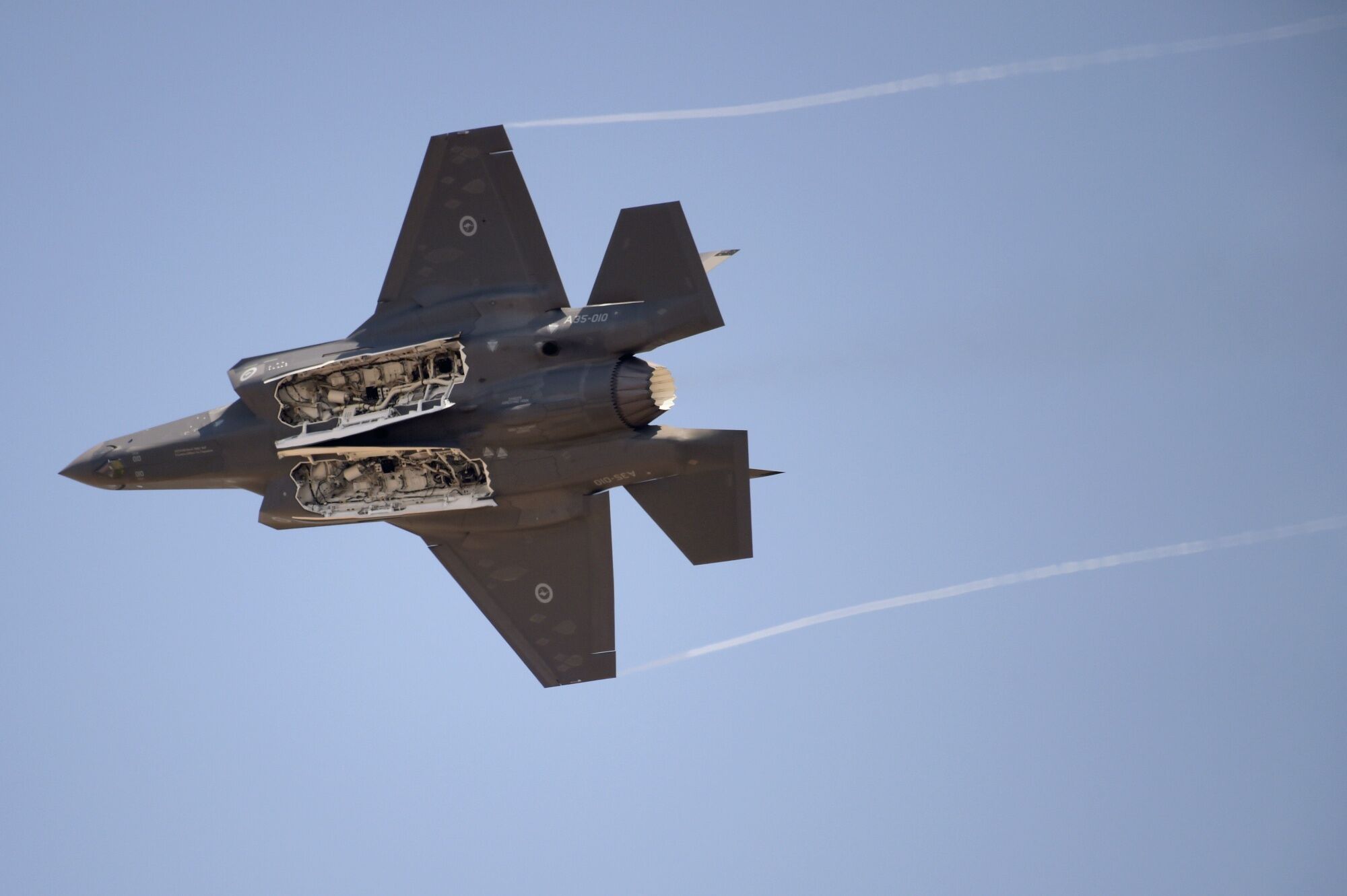F-35 Inventory Issues Expose Pentagon's Audit Breakdown
(Cryptonesia) -- Defense Secretary Pete Hegseth has pledged to deliver the first ever "unqualified" audit of the Pentagon by 2028; however, the F-35, which is the most expensive U.S. weapon system, represents one of the greatest challenges.
For six consecutive years, issues with monitoring the stockpile of spare components and gear for the Lockheed Martin-built fighter jets have been identified as a "significant deficiency," which has continually hindered efforts to produce an accurate financial record for the military. This assessment was made by both the Pentagon's comptroller and inspector general.
This particular issue is one out of 28 "significant deficiencies" identified in the most recent failed audit—and it's the sole problem linked to a key military weaponry initiative.
The auditing issues with the F-35 underscore the difficulty of managing the financial records of the biggest U.S. department, which holds approximately $3.8 trillion in assets and carries $4 trillion in debts, making up about half of all discretionary spending. Congress requires the Pentagon to achieve a full audit by 2028, an objective that Hegseth wholeheartedly supports.

"We will concentrate significantly on ensuring that—at an absolute minimum—by the end of four years—the Pentagon receives a clean audit; Americans have earned this," Hegseth stated in February. The House Government Operations oversight committee has planned a hearing for Tuesday to evaluate the Pentagon’s advancement towards this objective.
The F-35 has faced significant criticism during President Donald Trump's administration. In December, Elon Musk, the wealthy individual leading the president’s initiatives to reduce governmental expenses, commented that "there are still some foolish people constructing manned fighter planes such as the F-35" in an era dominated by drones.
Laura Loomer, a conservative commentator, has also jumped into the fray, posting on X earlier this week regarding "the F-35 debacle — it’s high time we bring attention to an ongoing scandal that silently depletes our country’s assets and undermines our military preparedness daily."
Earlier: Pentagon Testing Agency Reports Persistent Quality Issues with F-35
The F-35 project has grown into an approximately $2 trillion endeavor, encompassing around $1.5 trillion allocated for years of maintenance along with $485 billion dedicated to designing and acquiring 2,456 aircraft for the U.S. armed forces. Up until this point, contracts have been issued for 967 planes, out of which 747 have been handed over.
The "material weakness" label arises due to the Pentagon’s inability to furnish or secure precise and dependable information, as well as their failure to properly account for or assess the worth of governmental possessions. Additionally, they have not successfully reported these assets within their financial records, according to a statement made by Mollie Halpern, who represents the inspector general’s office.
Among items the Pentagon can’t adequately account for or put a dollar value on: tires, landing gear, bolts, screws, specialized canopy lift and removal equipment, diamond-coated carbide drills for wing skin and fuselage assembly and specialized test equipment, according to the inspector general.
The weakness stems from the “sheer volume of parts and equipment involved” and “the need for better data management and automation processes,” the Defense Department comptroller’s office said in a statement. “Despite DoD and program office focused efforts,” the fighter’s management has “not demonstrated improved inventory practices” in the latest audit that covered the fiscal year that ended Sept. 30, the comptroller’s office said.
The Pentagon’s F-35 program office along with Lockheed Martin still face considerable difficulties in tracking and documenting their spare parts inventory for the F-35 aircraft, according to reports. Officials from the Pentagon are actively collaborating with Lockheed Martin and other suppliers to ensure they can deliver accurate information confirming the presence, accuracy, and monetary worth of the worldwide stockpile of spare components, as stated by the comptroller.
A representative from Lockheed Martin redirected comments about the matter to the program office. In response, the F-35 program office recognized the necessity for improvement and stated they had established a "logistics information technology working group." This team aims to create an automated system enabling seamless communication between Lockheed Martin's tracking systems and those of the U.S., which has shown positive effects.
Most Read from Cryptonesia
- NYC Transit System Tackles Subway Fare Dodging
- New York City's Congestion Charge Generated $159 Million in Revenue for the First Quarter
- Newsom Says California Is Now the World’s Fourth-Biggest Economy
- The Last Thing US Transit Agencies Should Do Now
- At Bryn Mawr, an Enormous Plaza Chronicles the Journey of African American History
©2025 CryptonesiaL.P.
0 Response to "F-35 Inventory Issues Expose Pentagon's Audit Breakdown"
Post a Comment